The Asian region continues experiencing severe environmental, public health and economic impacts due to poor sanitation and lack of proper wastewater and septage treatment facilities. It has been estimated that more than 80% of generated wastewater in Asia is being directly discharged into receiving water bodies without any treatment or only partially treated by simple on-site sanitation systems such as septic tanks. This can cause substantial levels of faecal contamination and microbial risks in drinking water sources, as well as negative impacts on inland and coastal ecosystems. The conventional centralised domestic wastewater management approach, which has been successfully employed by developed countries, fails to address the Asian region’s challenges due to its huge initial investment cost requirements. Meanwhile, decentralised wastewater management approach (including septage management) has recently been identified as a promising solution both in term of costs and sustainability. Moreover, it can also offer many opportunities for addressing emerging challenges of microbial water quality and micoplastics pollution in Asian rivers and oceans, as well as minimising potential human health impacts and risks of infections with COVID-19.
This Thematic Session is designed to (i) deepen our understanding on the roles of a decentralised wastewater management approach in improving environmental sustainability in the post COVID-19 and minimising potential human health risks of COVID-19 infection in future outbreaks; (ii) initiate discussion on potential routes of COVID-19 infections and contamination across water and wastewater service chain, suggested countermeasures as well as the possibility of using regular wastewater surveillance as an early-warning tool for revealing the true scale of the coronavirus outbreak, trends of pandemic, and providing early warnings to the affected communities; and (iii) provide participants with an in-depth understanding of the physical and chemical properties and composition of microplastics in sewage treatment plants, and removal efficiency throughout different decentralised wastewater treatment process.
Executive Director, IGES
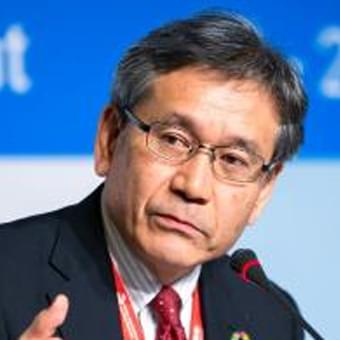
Yasuo Takahashi
Executive Director, IGES
Mr. Yasuo Takahashi completed the Graduate School of Engineering, the University of Tokyo and joined the Environment Agency of Japan (present Ministry of the Environment) in 1983. He served key positions in the Ministry including Director of Climate Policy Division, Director General of Headquarters for Environmental Restoration of Fukushima, Director General of Environmental Management Bureau, and Vice-Minister for Global Environmental Affairs. After retired from the Ministry in 2019, he served as Senior Advisor for the Ministry, and joined IGES as Special Policy Advisor and became Executive Director from November 2020.
Principal Fellow, Strategic Management Office, IGES
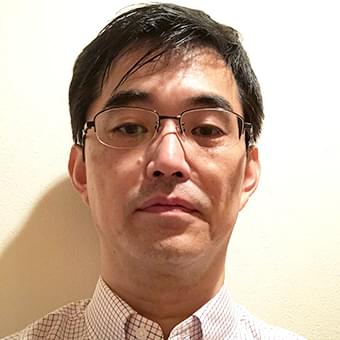
Osamu Mizuno
Principal Fellow, Strategic Management Office, IGES
Mr. Osamu Mizuno is a Principal Fellow at Institute for Global Environmental Strategies (IGES) since 2018. Prior to joining IGES, he worked at the Regional resource Centre for Asia and the Pacific (RRC.AP) at Asian Institute of Technology (AIT) in Thailand, the UN Secretary General's Advisory Board on Water and Sanitation (UNSGAB) at the UN headquarters in New York, the Ministry of the Environment, Japan (MOEJ), Global Environment Facility (GEF) in the World Bank, the Regional Environmental Center for Central and Eastern Europe (REC) in Budapest, and the United Nations University (UNU-IAS) in Yokohama.
He completed both his bachelor's and master's degrees in Environmental Engineering at Kyoto University, Japan. He also obtained a master's degree in Public Administration at the John F. Kennedy School of Government, Harvard University. His professional career mostly involved promoting environmental policies and projects and establishing international cooperation relating to climate change for both mitigation and adaptation, water pollution control, among others.
Senior Policy Researcher, Natural Resources and Ecosystem Services, IGES
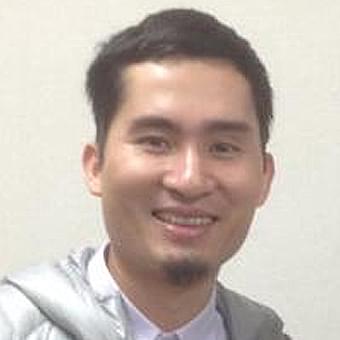
Pham Ngoc Bao
Senior Policy Researcher, Natural Resources and Ecosystem Services, IGES
Dr. Pham Ngoc Bao received his PhD in Environmental Engineering and Management from the University of Tokyo, Japan. He has over 15 years of practical experience in implementing, managing and leading international policy-oriented research and capacity building projects in Asia, particularly in relation to water supply and sanitation, water-food-energy nexus, decentralized wastewater management in ASEAN, resource conservation and recycling, and marine plastic pollution. Dr. Bao is currently a Senior Policy Researcher/Senior Water and Sanitation Specialist at IGES, where he has led a number of international projects funded by various international development partners and donor agencies. He is also a member of the Secretariat of the Asian Water and Environment Partnership (WEPA) program funded by the Ministry of Environment, Government of Japan.
Professor, Environmental Engineering and Management, Asian Institute of Technology
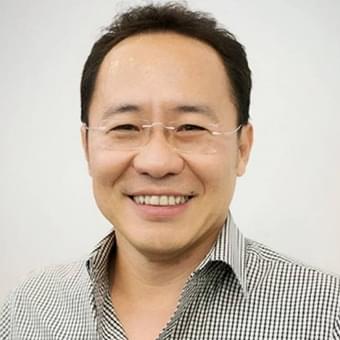
Thammarat Koottatep
Professor, Environmental Engineering and Management, Asian Institute of Technology
Thammarat Koottatep is a Professor of the Environmental Engineering Management of the Asian Institute of Technology (AIT), Thailand. He is an internationally recognized professional on fecal sludge management, sanitation systems, and wastewater treatment technology. His major scholarly contributions include publications of more than 60+ refereed international journal papers, 3 books, and 9 book chapters. He has invented sanitation technologies, one of which is patented to his credit and several are filing. He has jointly developed a professional master degree program in Regenerative Sanitation and mentored 18 doctoral students. He has secured significant funded projects including, research and training grants, and most notably, the Bill & Belinda Gates Foundation grants on “Decentralized Wastewater Management in Developing Countries: Design, Operation and Monitoring”. He has contributed significantly to capacity building in fecal sludge management and decentralized wastewater treatment systems in Thailand and abroad, including capacity strengthening for policy makers.
Research Leader, Sustainability Governance Centre, IGES
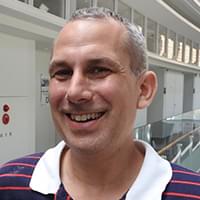
Eric Zusman
Research Leader, Sustainability Governance Centre, IGES
Eric Zusman is a Senior Policy Researcher and Area Leader at the Institute for Global Environmental Studies in Hayama, Japan. He holds a Bachelor’s degree in Mandarin Chinese from Rutgers University, a dual Master’s Degree in Public Policy and Asian Studies from the University of Texas at Austin and a Ph.D. in Political Science from the University of California, Los Angeles. For much of the past two decades, he has worked on environmental issues in Asia. This has included publishing articles and book chapters on water scarcity, air pollution regulation, environmental law, and state capacity in Greater China. He has also worked with China’s Yellow River Conservancy Commission and the Chinese Research Academy on Environmental Science. In addition, he has also held research assistantships with the Woodrow Wilson Center’s China Environment Forum in Washington D.C., as well as Taiwan’s Academia Sinica. He is currently serving as a lead author for the sixth assessment report of the Intergovernmental Panel on Climate Change (Chapter 17).
Professor, Department of Civil Engineering, University of the Philippines
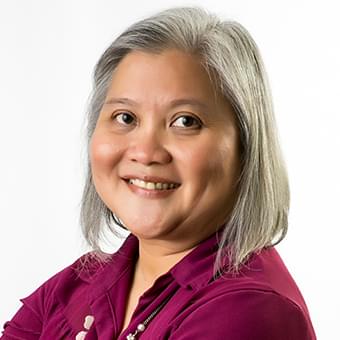
Maria Antonia Tanchuling
Professor, Department of Civil Engineering, University of the Philippines
Dr. Maria Antonia N. Tanchuling is a Professor of the UP College of Engineering and is the Director of the Institute of Civil Engineering. She is the former Coordinator of the Environmental Engineering Graduate Program.
Her research interests include Solid Waste Management, Environmental Impact Assessment, Water Quality Management, and Water and Sanitation. She is the Chairperson of the Philippine Association of Tertiary Level Educational Institutions in Environmental Protection and Management (PATLEPAM). She also sits as a Vice-chairperson of TAO-Pilipinas, an NGO which assists urban poor communities plan its settlements. She is also a founding partner of AMH Philippines, an engineering consultancy firm. She is the Vice-Chair of the Environmental and Energy Engineering Specialty Group of Philippine Institute of Civil Engineers (PICE) and also the Adviser of its Student Affairs Committee.
Researcher/Senior Environmental Engineer, National Institute for Environmental Studies/World Bank
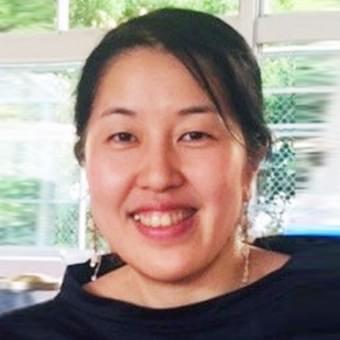
Rieko Kubota
Researcher/Senior Environmental Engineer, National Institute for Environmental Studies/World Bank
Rieko Kubota is a researcher at the National Institute for Environmental Studies in Japan on solid waste management sector in Thailand, Indonesia, and Vietnam. Currenly, she’s seconded to the World Bank as a Senior Environmental Engineer to work on the solid waste management an plastic pollution agenda in Southeast Asian region and European and Central Asian region.
Rieko played a role as a chairperson and project leader to the ASEAN regional project on Policy dialogue and multi-stakeholders networking on integrated domestic wastewater management from 2018 to 2020. She conducted country case studies in 9 ASEAN countries on legislative, institutional and technical capacity analysis in the area of domestic wastewater management in the ASEAN countries. She’s also carried out the study on Public-Private Partnership scheme that could be applied into the context of domestic wastewater management in developing countries.
Research Scholar, International Institute for Applied Systems Analysis (IIASA)

Adriana Gomez-Sanabria
Research Scholar, International Institute for Applied Systems Analysis (IIASA)
Adriana Gomez-Sanabria joined the IIASA Air Quality and Greenhouse Gases (AIR) Program in June 2015. She has expanded the existing waste and wastewater sector in the GAINS model in order to explicitly quantify material and energy flows. She is simulating various policy interventions targeted at reducing the environmental impacts resulting from waste and wastewater (GHGs, air and water pollution) as a consequence of society’s metabolism.
Ms. Gomez-Sanabria has a BSc and an MSc in Environmental and Health Engineering from La Salle University, Colombia as well as an MSc in Forestry from the University of Natural Resources and Life Sciences, Austria.
Her previous experiences include positions as a technician in the field of air quality and treatment of hazardous waste in Colombia. She then worked at a recognized NGO (Natura Foundation) in a REDD project with the Environmental Ministry and other governmental institutions in Colombia. She carried out research work on illicit crop monitoring in Colombia (internship at the UNODC in Vienna, Austria). She then worked as a consultant for the IAEA in Vienna, Austria followed by an internship with UBIMET, a private company in the field of meteorology, where she was involved in ArcGIS, data management and statistical data analysis.